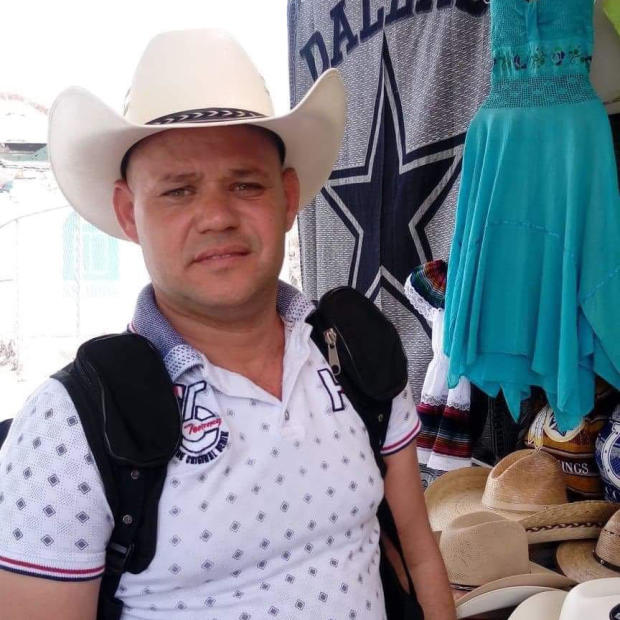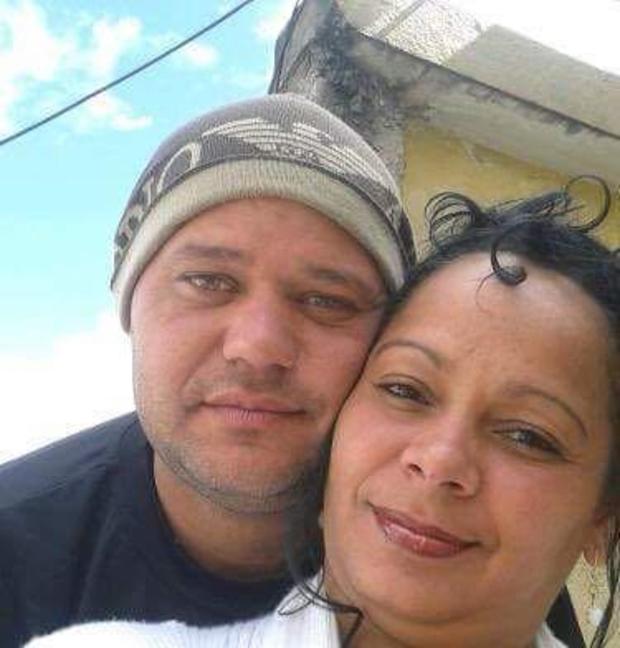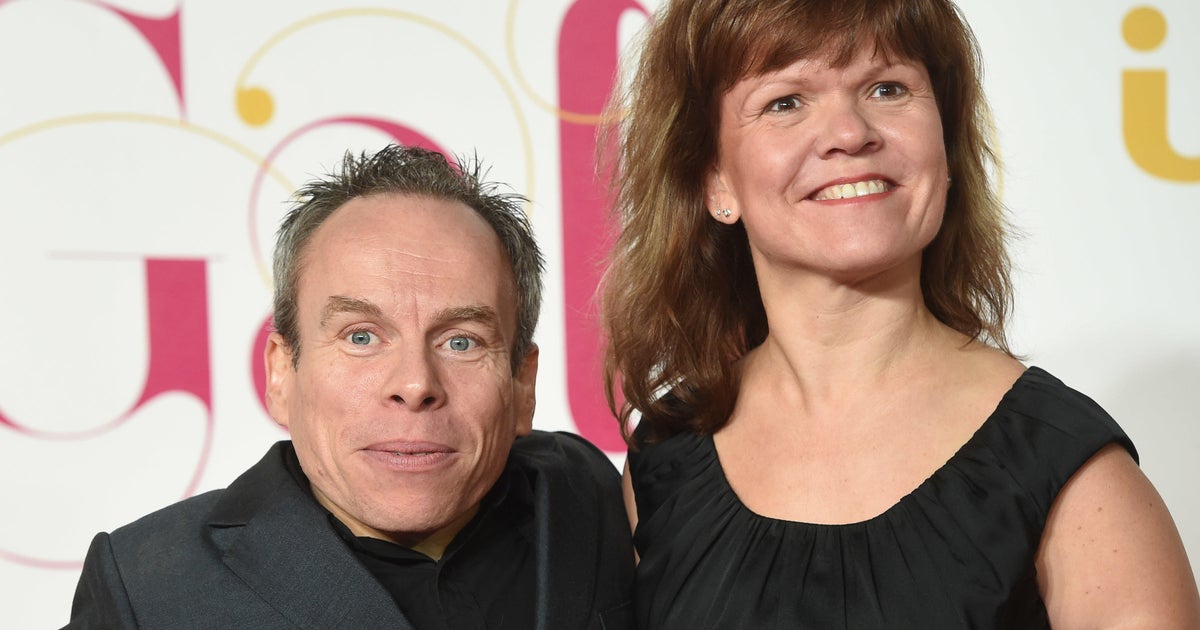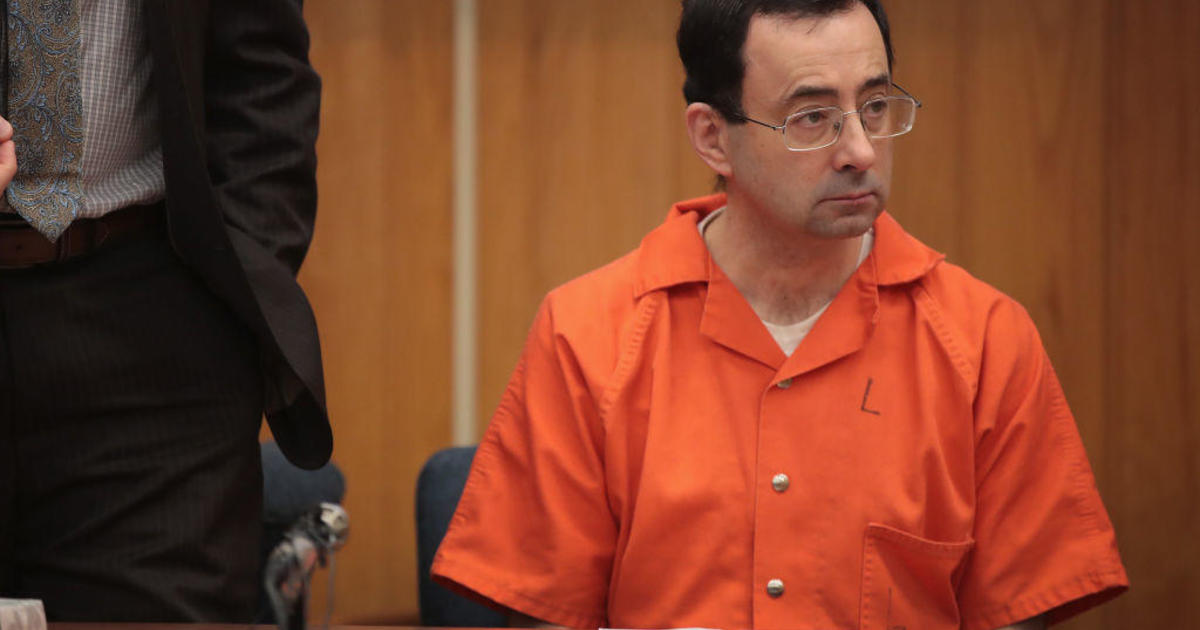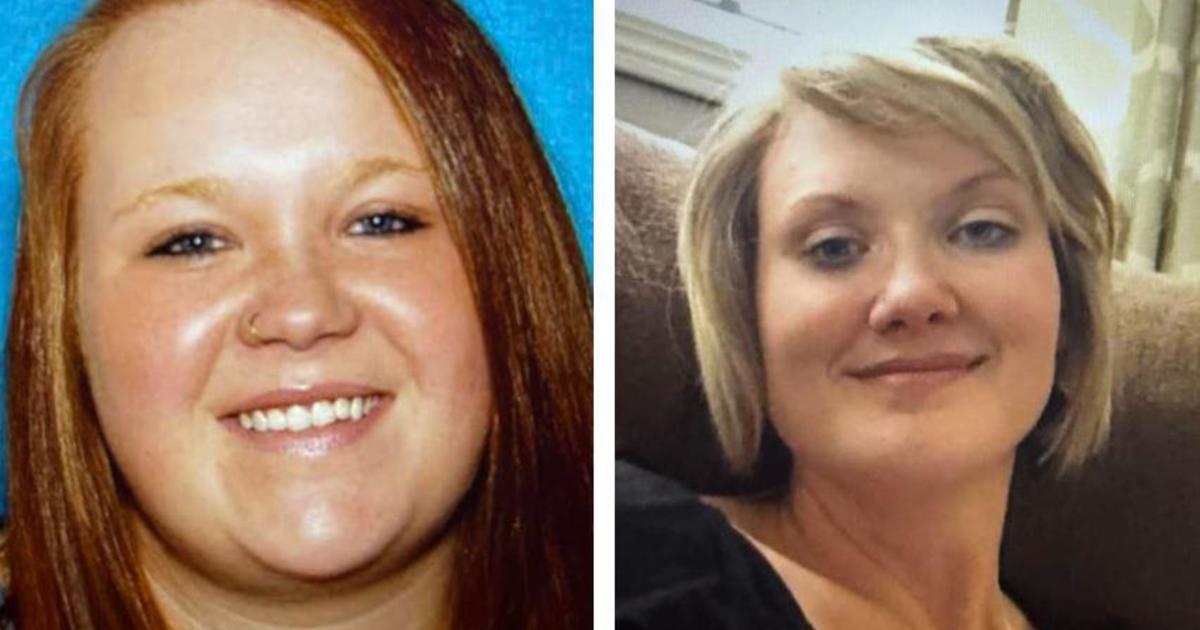"Justice is needed": Death of asylum-seeker in ICE custody sparks cries for reform
Washington — The death of a Cuban asylum-seeker at a private detention center in Louisiana has sparked cries for reform of the U.S. immigration detention system from desperate detainees and concerned advocates, who believe immigration authorities should not be in the business of detaining people seeking refuge and who don't pose a threat to the public.
On Tuesday afternoon, Roylan Hernández Díaz, 43, was found dead inside the Richwood Correctional Center, one of nearly a dozen detention centers in Louisiana that Immigration and Customs Enforcement (ICE) is using to detain thousands of immigrants. Hours after CBS News reported the death, ICE said it was investigating the incident as an apparent suicide.
For many, including two detainees at the Richwood facility, Hernández Díaz's death — the second one in ICE custody this month — was the tragic yet predictable result of unbearable frustration and desperation stemming from a system of prolonged detention. Hernández Díaz was in ICE custody for 148 days.
"We came to this country in search of liberty. And we've found death and detention," one Cuban immigrant detained at the facility where Hernández Díaz died told CBS News in a voice recording.
The detainee, who is not being identified because of fears of reprisals, said he and other detained immigrants are having their rights violated inside the detention center in northern Louisiana.
"The only thing we want is for the mistreatment and psychological abuse that we are going through to stop," he said in Spanish. "The only thing we ask for is liberty."
Reached for comment, a spokesperson for ICE said the agency is "firmly committed" to ensuring the well-being of detainees.
"All ICE facilities are routinely inspected to ensure they adhere to ICE's detention standards, which provide several levels of oversight in order to ensure that residents in ICE custody reside in safe, secure and humane environments," the spokesperson said.
Immigrant advocates have long criticized the practice of detaining asylum-seekers, especially for prolonged periods of time, while they continue their immigration court proceedings. Under U.S. law, authorities have the authority to hold people who seek asylum at a port of entry in detention, but they also have the discretion to release people on parole.
Under the Obama administration, most asylum seekers who passed so-called "credible fear" interviews were not detained for long periods of time. These screenings are required to avoid immediate deportation and to file an asylum claim. Under the Trump administration, however, advocates have denounced what they see as a major shift.
"We've seen under the Trump administration that virtually all asylum seekers who pass their credible fear interviews are being detained, regardless of whether they are a flight risk, regardless of whether they are a danger," Aaron Reichlin-Melnick, a policy analyst at the American Immigration Council, told CBS News.
Reichlin-Melnick said there are effective alternatives to detention, including programs that connect asylum seekers with lawyers and legal groups to ensure they show up to court and navigate the byzantine immigration system.
"There's no good reason to lock up asylum seekers who have passed their credible fear interviews and who only want access to the asylum process," he added.
"I never saw my husband again"
Yarelis Gutiérrez received a call from an unknown number on Tuesday afternoon. It was an immigration official, who told her that her partner of three years, Roylan, had died.
"I couldn't believe it," Gutiérrez told CBS News in Spanish.
Shocked and distressed, she said she tried to ask the official what had happened. But the official said that was all he could tell her and hung up.
After fleeing their native Cuba, Gutiérrez and Hernández Díaz arrived at the U.S.-Mexico border earlier this year. They opted not to try to cross illegally like many of their fellow migrants and refugees, instead seeking asylum at a port of entry in the El Paso sector of the border, as permitted under U.S. law.
"We were part of a group of people in Mexico on a waiting list," Gutiérrez said, referring to the practice of "metering," in which U.S. officials impose daily limits on the number of people who can seek asylum at high-traffic ports of entry.
The waiting lists at ports of entry are not organized or recognized by U.S. authorities, but have been set up by local groups and Mexican authorities to try to bring some order to an otherwise chaotic situation in which tens of thousands of would-be asylees wait for their chance to speak to U.S. officials.
"When our number came, the Mexican immigration [officials] took us to the American immigration officials," Gutiérrez said.
Gutiérrez also confirmed they were briefly detained by Customs and Border Protection in El Paso after entering through the port entry. But she said she was soon separated from her partner, as she was allowed to continue her immigration proceedings outside of detention, but he wasn't.
"We never saw each other again," Gutiérrez said, her voice trembling. "I never saw my husband again."
"An injustice"
In a release about Hernández Díaz's death, ICE said it detained him on May 20, two days after he was transferred from CBP custody.
"He was subsequently transferred into ICE custody pending adjudication of his claim for an immigration benefit," the agency said.
The immigration benefit was asylum, which Hernández Díaz asked for because of persecution he endured at the hands of the repressive government in Cuba, according to Gutiérrez. Hernández Díaz underwent and demonstrated a "credible fear" of persecution in an interview.
While detained at the Richwood Correctional Center, Hernández Díaz continued his immigration proceedings, participating in court hearings at the facility where a judge heard his case remotely and via video teleconference.
His master hearing was in late August, while a second one was scheduled for October 9, six days before he died, a spokesperson for the nation's immigration courts told CBS News. In addition to asylum, the Cuban immigrant also applied for protection under the United Nations Convention Against Torture, the spokesperson said.
According to a second fellow detainee at the facility who requested anonymity, Hernández Díaz became increasingly desperate after the court appearance earlier this month in which he pleaded with the judge to release him.
"He asked for a bond and she denied it," the second detainee told CBS News in a recording in Spanish. "He knelt on the floor and begged her to please give him bond, that he met all the requirements."
Soon after the court appearance, Hernández Díaz was placed in "el pozo," the fellow detainee said. According detainees and attorneys, immigrants use the phrase, meaning "the hole" or "the well," to describe solitary confinement cells.
"There, he hanged himself," the immigrant said, describing Hernández Díaz as "a young man, a good person."
"An injustice," he added, saying detainees were planning a vigil this week for Hernández Díaz. "We are all very united."
An ICE spokesperson confirmed that Hernández Díaz had been segregated from other detainees at the time of his death, saying the action was taken because the Cuban immigrant had embarked on a hunger strike and officials needed to monitor him.
The spokesperson also pushed back on the notion that ICE overly relies on detainee segregation, saying that on average, about 1.1% of the population in custody was held in segregated units.
"By any fair measure, any allegation regarding excessive use of segregation in ICE custody is baseless. The use of segregated housing in ICE custody is more than four times lower than the national average for detained populations," the spokesperson.
"January 30, 2020"
The last time Gutiérrez spoke to Hernández Díaz over the phone was on October 9, shortly after his last date in court.
On Wednesday night, Gutiérrez was still coping with the abrupt and devastating news from the day before. She went to church to pray and seek solace. But that's not all she is seeking.
"Justice is needed," Gutiérrez said.
A hotline operated by the Executive Office for Immigration Review (EOIR) for immigrants to check on their next court dates and the status of their claims still has information about Hernández Díaz's case.
After inputting his nine-digit "alien registration number" — the identification number the government assigns immigrants in court and removal proceedings — a stilted automated voice says Hernández Díaz's case is still "pending."
The system, which misspelled his first name, has him scheduled for another court date at the Richwood Correctional Center, where he died on Tuesday.
"Your next individual hearing date is January 30th, 2020, at 8:30 a.m.," the message says.
